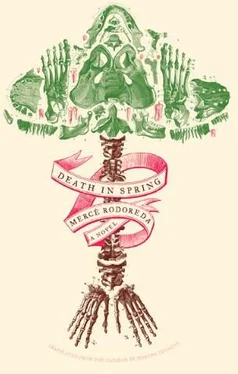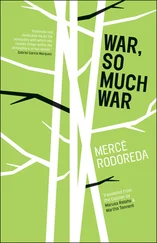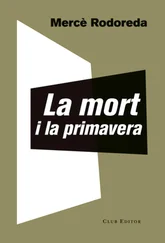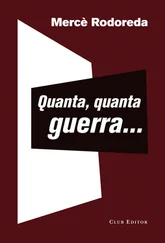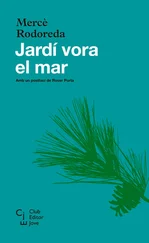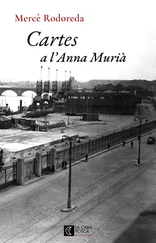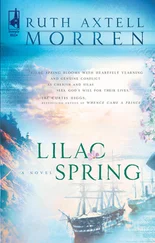All morning I lay down, watching the water and sky and round clouds that had gathered above Maraldina. The sun was bright, air cool, spiders weaving their webs from branch to branch. I fell asleep lying on my stomach so the light wouldn’t bother me, the sun beating down on my back. I had perhaps never slept so deeply, so deeply that I was surprised when I awoke. Feeling as if I couldn’t sleep, I strolled over to the river and lowered myself into the water, completely, eyes and hair, then I got out. When I reached the center of the seedlings, I noticed the odor of manure and the scent of wisteria blossoms, the two mixed together. I didn’t know where the smell came from, everything was so far away, and the river separated us. After the sun and water, it seemed like night beneath the trees. Countless butterflies were fluttering about, many of them resting, wings up, forming white leaves. The axe and pitchfork stood in their usual place; on the ground near the tree trunks lay some nails used to fasten the bark when extracting the seedcase from the tree. I made my way slowly beneath the trees and butterflies, the axe on my back, the awl and pitchfork in my hands. I marked the cross with my fingernail. My nails had grown hard, like my father’s. I marked the cross. I wanted to walk about because I was trembling all over. From head to toe. But not because I had moved from the sun into the shade. The trembling sprung from my heart; neither my will nor that of the wind was the cause. Some tiny bones still lay on the stone that had served as a pot. I picked up a few, threw them in the air and let them fall. They were the same color as before, made the same sound as before. Senyor’s tree had full leaves and a thick truck. I went over and embraced the trunk, my hands barely able to encircle it. The bee-emblazoned ring was fastened to the base. The fence of thorny brambles had been leveled. I glanced up and was enthralled by the butterflies; then I returned to my tree and began to open up the cross. My heart pounded with each blow of the axe, with each blow. Suddenly I was consumed by fear. Behind me stood the shrub where I had hidden the day my father killed himself, the one with the yellow flower and the furious bee. I leaned down and picked up an old leaf that was full of veins, a web of stiff filaments that had once been tender and clothed in green. I crushed it, then opened my hand and let the pieces fall. I remembered being frightened and hiding behind the shrub as I heard footsteps. It all came back to me. The person who was now unsealing the tree was someone else, and I was hiding behind the shrub. The shadow of two butterflies chasing each other distracted me. I shooed them away and returned to my task of striking the tree with the axe. The trunk was hard. A tree is solid the first time it is split open, but if it has already been breached, it is not difficult to open again. My palms began to sting after a while, and I rested the axe on the ground and spit into them, rubbing one palm against the other. Between two fingers, where the palm hollows out a bit, a blister had formed.
When I had the cross open from top to bottom, I opened it from side to side. I paused and shielded my eyes with my arm. The blister popped, and water oozed out of it; skin was pushed to one side and the raw flesh smarted. A smell emerged from the interior of the tree, like nothing I had ever smelled before. It had a faint trace of something fresh, like a wave that delved deep inside me, compelling me to breathe in what seemed to be a scent of life, enveloped by gasps of smoke, that was coming to me from within the tree.
The butterflies were going mad after flying all day. There seemed to be more and more of them, as if the sun and axe blows were encouraging them to be born and grow faster. Fear returned. Fear caused a drop of salt water to trickle down my back. I had the impression that behind me, where the bee had sucked the flower for so long, a hidden child was watching what I was doing, and the child would run away to alert the villagers, starting with the blacksmith. He would tell them that a man was hollowing out a tree with a pitchfork in the forest of the dead.
I strode over to the shrub. When I had taken four steps, I tripped. One of my feet had caught in the handle of a root, and I hurt my knee. Nothing was behind the shrub. A stream of warm blood ran down my leg. As I turned round to finish opening up the tree, I heard a little laugh, like a memory. On my left cheek, above my heart, I felt a caress mixed with wet hair, as if the air that wasn’t air were brushing my cheek with green cane leaves. With a sudden movement, I covered my eyes with my arm, burying the raw flesh from the blister in a fold in my scarred forehead, and I did what I could to keep the caress on my cheek from dying. I took hold of my cheek so the caress would not flee. A ray of sun burnt my chest and dried the blood from my knee. The branches moved. Time was fleeing, and I had to bring Time to a close. Branches swayed, leaves swayed, blades of grass swayed, as if everything that lacked a voice wished to speak to me.
The seedcase rolled out of the tree. I picked up the awl and pointed it at my heart. I was giving them only a corpse. Death without the Festa. I walked back and put away the pitchfork and axe, then returned slowly because my knee ached and the blood that had become a scab pulled with the movement. I gave the seedcase a prod, rolled it to another tree, and covered it with leaves. I hope it will be a long time before they realize. If they drag me from the tree, they will drag me out dead. I removed the four nails from the bark, letting them drop one by one. I pierced my heart with the awl and my life closed. I can begin the story of my life wherever I wish; I can tell it differently, I can begin with the death of my child, with the morning the blacksmith’s son jumped in front of me in the forest of the dead, with my visit to Senyor. It matters not what I do, my life is closing. Like a soap bubble that has turned to glass, I cannot remove anything or add anything. I can change nothing in my life. Death escaped through my heart, and when I no longer held death within me, I died.
Mercè Rodoreda (1908–1983) is widely regarded as the most important Catalan writer of the twentieth century. Rodoreda began writing short stories as an escape from an unhappy early marriage, and in the early 1930s she began publishing political articles and wrote four early novels. Exiled in France and Switzerland following the Spanish Civil War, Rodoreda began writing the novels and short stories— Twenty-two Short Stories, The Time of the Doves, Camellia Street, Garden by the Sea —that would eventually make her internationally famous, while at the same time earning a living as a seamstress. In the mid-1960s she returned to Catalonia, where she continued to write. Death in Spring was published posthumously, and is translated into English for the first time here.
Martha Tennent was born in the United States, but has lived most of her life in Barcelona, receiving her B.A. and Ph.D. in English from the University of Barcelona, and serving as the founding dean of the School of Translation and Interpreting at the University of Vic. She has regularly translated between Spanish, Catalan, and English, and recently edited Training for the New Millennium: Pedagogies for Translating and Interpreting . Her translations have appeared in Two Lines, Words Without Borders, eXchanges , and Review of Contemporary Fiction .
Open Letter — the University of Rochester’s nonprofit, literary translation press — is one of only a handful of publishing houses dedicated to increasing access to world literature for English readers. Publishing twelve titles in translation each year, Open Letter searches for works that are extraordinary and influential, works that we hope will become the classics of tomorrow.
Читать дальше
